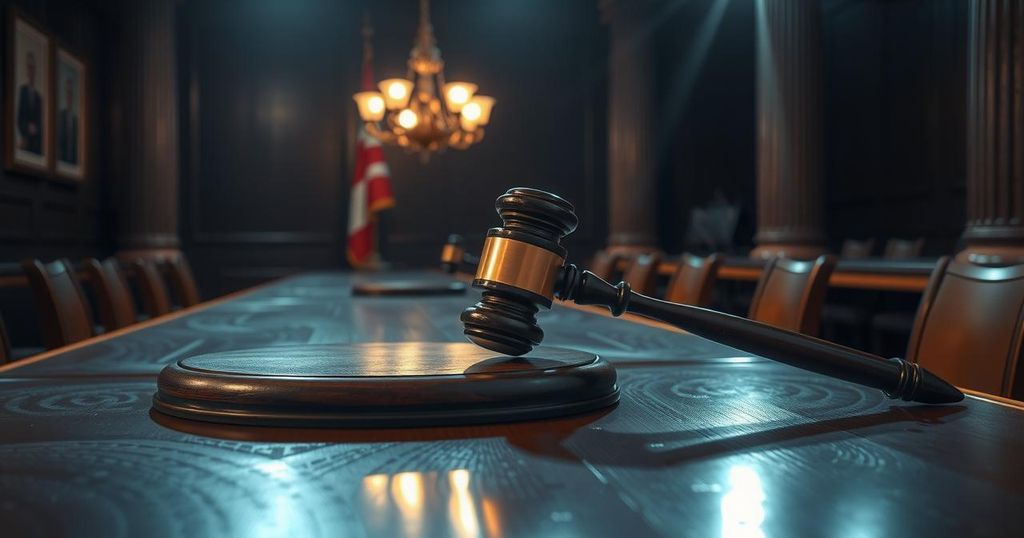The upcoming Wisconsin Supreme Court election on April 1, 2025, involves significant financial stakes and critical issues including abortion rights and labor policies. Liberal Susan Crawford faces conservative Brad Schimel in a race that underscores the influence of high-profile donors and political affiliations. The election’s outcome is expected to reflect voter sentiment towards national party agendas and set the tone for future electoral contests in this swing state.
The upcoming Wisconsin Supreme Court election on April 1, 2025, may be the most prominent political contest of the year, despite only one seat being contested. The race features liberal Susan Crawford, currently a Dane County Circuit Judge, against conservative Brad Schimel, of Waukesha County. This electoral battle not only holds significant monetary stakes but also has implications for crucial judicial issues, such as abortion rights and labor policies, influenced by the court’s composition.
With a projected cost surpassing the $51 million of the previous Supreme Court election in Wisconsin, significant financial contributions from high-profile executive entities underscore the political intensity. Major donors, including George Soros and Diane Hendricks, have directed considerable funds to their respective parties, further indicating the stakes involved. Additionally, a new wave of advertisements funded by Elon Musk’s associated group aims to sway the judicial election’s outcome.
Political analysis suggests this election is emblematic of broader national trends and will reflect voter sentiment towards the Republican and Democratic agendas in a pivotal swing state. Barry Burden from the University of Wisconsin-Madison highlights that the Supreme Court has become the focal point for crucial societal issues, marking this election as pivotal for both parties in the approaching 2024 elections.
The Wisconsin judicial election is officially nonpartisan, yet organized efforts from both parties reveal an intention to influence voter preferences. While Democrats utilize notable figures, such as former attorney general Eric Holder and Kamala Harris, to galvanize support for Crawford, Republicans, including Schimel, hope to leverage Trump’s influence in a state Trump won narrowly in 2024.
Commentators suggest this race will serve as a litmus test for the Democratic Party’s resilience in a challenging political environment. WI Democratic Party Chair Ben Wikler asserts that the outcome will indicate whether Democrats can mobilize effectively in response to looming conservative influence in state and federal policies. Meanwhile, GOP leaders believe Schimel’s potential victory can extend Trump’s electoral gains into future elections, creating a significant narrative around this election.
The two candidates are set to engage in a debate on March 12, which is expected to intensify their respective campaigns. As various legalissues, such as the historic abortion ban from 1849 and collective bargaining rights for public employees, are at stake, the election takes on heightened significance.
Given recent political history, the Supreme Court’s composition has critically influenced major election outcomes in Wisconsin. As the justices contended with challenges against Trump’s election-related claims in 2020, the court’s balanced nature produced significant rulings that may affect the state’s congressional map and labor laws. The candidates’ differing judicial philosophies are keenly observed in the context of these issues, shaping the election narrative as it unfolds.
In conclusion, the Wisconsin Supreme Court election is positioned as a crucial political contest with significant ramifications for judicial authority and policy direction in the state. With heavy financial backing from influential figures and intensive campaigning by both parties, this election will likely serve as a determinant of the balance between liberal and conservative judicial ideologies. As such, the April election is not merely a contest for one judicial seat but a reflection of evolving voter preferences in a key swing state.
Original Source: www.cnn.com






